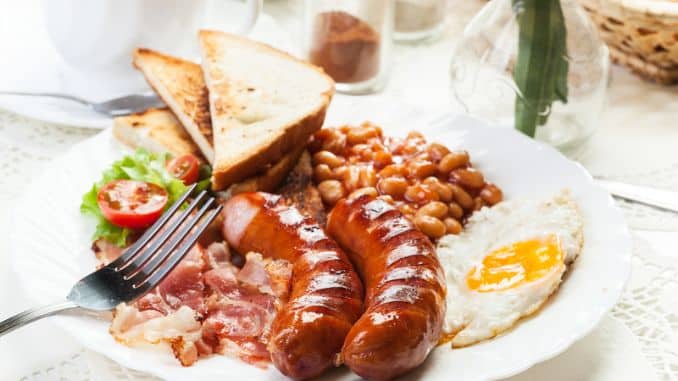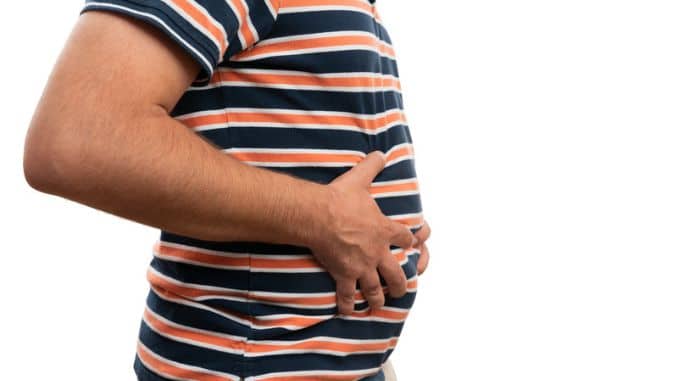
What is Bloating?
Bloating is a condition that affects many people. It is not just uncomfortable, but it can also be very embarrassing as it makes you feel fat. You can help avoid bloating by choosing the right foods and knowing what to avoid.
When we eat, our stomach and intestines release gastrointestinal hormones to prepare the body for digestion. These hormones signal the gallbladder and liver to secrete bile. Bile is a digestive fluid containing chemicals important for breaking down fats. One of these chemicals is called bile acids.
Bloating can be caused by too much gas or too little bile acids. We all know that gas is made when food moves through the digestive tract, but not everyone knows that it can also be caused by bacteria that live in the gut. Bile acids help break down the fats in food so that they’re easier to digest. Still, if your body doesn’t have enough of this chemical, you might experience bloating, nausea, vomiting, diarrhea, constipation, cramps, diarrhea, and weight loss.
Foods that cause Bloating
Foods that cause bloating can be hard to spot. Some are obvious, like beans and fried food. But others sneak their way into your diet without you even realizing it. For example, many people don’t think of dairy products as potential causes of bloating until they’ve already eaten the cheese in their salad or that last bite of ice cream.
Happy Sunday. I hope you have some exciting stuff with your family and friends for today.
Today, the family and I will go boating. We will make the most of our summer break before fall hits and the kids return to school.
Now, I will share an interview with Amy Lewis as we talked about bloating. In this part of the interview, we highlighted the best and worst foods for bloating.
Enjoy the interview.
CLICK HERE to watch the YouTube video interview.
In the interview above, you will discover:
- Who is Amy Lewis?
- What is belly bloating?
- Two common causes of belly bloat
- Two biggest culprits behind pooch belly
- How do you know whether your bloating is a nuisance or a sign of something more serious?
- Why your diet can make you bloated
- Best and worst foods for bloating
Who is Amy Lewis?
Amy Lewis is a fitness and nutrition expert from Killington, Vermont. She was involved in gut health for almost 20 years. It’s a passion of mine to help people have a lot of fun. She is living a healthy lifestyle that helps to keep us healthy.
Belly Bloating
The abdomen is the part of the body that holds many digestive organs, including the stomach and intestines. Swelling in this area can cause various reasons such as gas from swallowing air or food, inflammation around an organ due to infection or disease, accumulation of fluid (ascites) around an organ due to cirrhosis, kidney failure, etc. In some cases, it may also lead to pain when pressure on abdominal muscles increases with movements like coughing and laughing which are often relieved after lying down for a while.
The most common symptom of this type of abdominal pain is bloating, which may cause nausea in some people. Other symptoms include vomiting blood due to bleeding from an inflamed area in the digestive tract; feeling full after only small amounts of food have been eaten; constipation from more than three days without relief despite increased fiber intake; diarrhea lasting longer than two weeks without any other explanation like infection being found through testing.
Why is My Stomach Bloated?
Although you can’t see your stomach, it is still one of the most important organs in your body. Your stomach is responsible for digesting food, converting nutrients into energy, and storing energy when you don’t get enough to eat.
It’s also responsible for protecting your internal organs from harmful substances you consume. When you eat, your stomach works together with acids and enzymes to break down food into small particles to be absorbed by the small intestine. The stomach also makes acid to help break down proteins.
Gas in the intestine is caused by swallowing air, eating certain foods that are high in fiber or sugar content, and drinking carbonated beverages. The gas can cause stomach pain or bloating because it presses on other abdomen organs.
Other symptoms include belching (burping), nausea, vomiting, heartburn (acid reflux), and diarrhea. Treatments for excess intestinal gas vary depending on what’s causing it but may involve changing it through proper diet and exercise.
2 Common Causes of Belly Bloat
Belly bloat is when your midsection becomes gassy and bloated to feel uncomfortable. It can be extremely painful, especially when you have a stomachache or a bowel movement. Here are the common causes:
- You are eating too quickly. You’re taking in a lot of air as you’re not waiting between bites, and your food is being eaten so fast that the air gets into your stomach. This causes more issues when digesting food, and these problems eventually lead to bloating.
- Combination of gas-forming foods. Food combinations can be because of bloating. The primary reason for this is that the stomach might be unable to break down all of them, which leads to gas. As the food ferments in your stomach, you might experience various symptoms like gas. Food combinations can be important for this as well as types of food. Many people don’t have the necessary enzymes to help digest our modern diet today, which leads to excessive bloating from fermenting foods that we eat too quickly without chewing properly. So these days, with so many people having gluten allergies or sensitivities to dairy products and gluten- any one or more of them could cause a bloated feeling in the gut.
Two Biggest Culprits Behind Pooch Belly
Gluten and dairy products are the two biggest culprits behind a puppy’s belly. Whether you’re sensitive or allergic to gluten or dairy, it can cause serious bloating and cramping for anyone who consumes them. The problem is that most people don’t realize that they’re doing this to themselves. You might also not realize how harmful these ingredients are to your body.
Consuming gluten or dairy will spike your blood sugar levels, causing a rapid increase in insulin production. This creates small bubbles of gas in the stomach, which causes an uncomfortable feeling in the abdomen. It can also cause irritable bowel syndrome and other digestion issues.
How Do you Know whether your Bloating is a Nuisance or a Sign of Something More Serious?
Bloating is a very common condition, which can be a nuisance to some, but for others, it can signify something more serious. Bloating can be caused by different problems like gas, constipation, diarrhea, and even appendicitis.
If you’re experiencing belly-bloating daily, discomfort in your gut daily, or multiple times a week, there’s probably something else going on along with the belly bloat.
Usually, other symptoms are brain fog, anxiety, and depression. So if you’ve got a belly bloating and some of these other things going on, that’s a clue that there’s something bigger going on in the gut as we heal it.
Those symptoms will be healed quickly by cleaning up our diet to include healthy foods like vegetables and probiotics from yogurt, which help maintain balance with the digestive tract so all those bacteria can thrive! You should know the difference between these symptoms to tell your doctor what could be causing your bloating.
Why can your diet Make you Bloated?
Diet plays a major role in why you are bloated. As you put foods and, or nonfoods, your body’s going ahead to deal with those. We have enzymes that help us break down those foods. As we age, some of those enzymes lessen.
So we don’t have the same tools within our systems on their own to go ahead and digest the food properly without any problems at all, but sugar is a huge culprit because it causes bloating so easily when consumed. Too much of it can be bad for your health, especially if you’re not active enough, which will make things worse than they already were due to lack of exercise.
Sugar isn’t always called sugar, but that’s usually what people think about first whenever someone mentions anything related to being bloated from eating something sweet like chocolate cake or ice cream, etc. Sugar is also found in many other types of food, including bread, pasta sauce, cereal bars, etc.
Best and Worst Foods for Bloating
Bloating is very common among people. To help you, here is the best and worst food for bloating:
Best Foods for Bloating
- Protein-Rich Foods
- Vegetables
- Sweet potato and squash as a source of caAlthoughhydrates
Worst Foods for Bloating:
- Sugar
- Processed foods
- Tofu
- Caffeine
Bloating is a common side effect of eating, especially after eating too much or certain types of food. This can be an uncomfortable feeling that can range from mild to severe. The good news is that you don’t have to live with bloating forever! Diet changes are one way to help with this problem.
I hope you enjoyed the interview.
Take care!
Rick Kaselj, MS
For your guide to the best foods to heal your body, check out The Best Foods that Rapidly Slim & Heal in 7 Days here!


